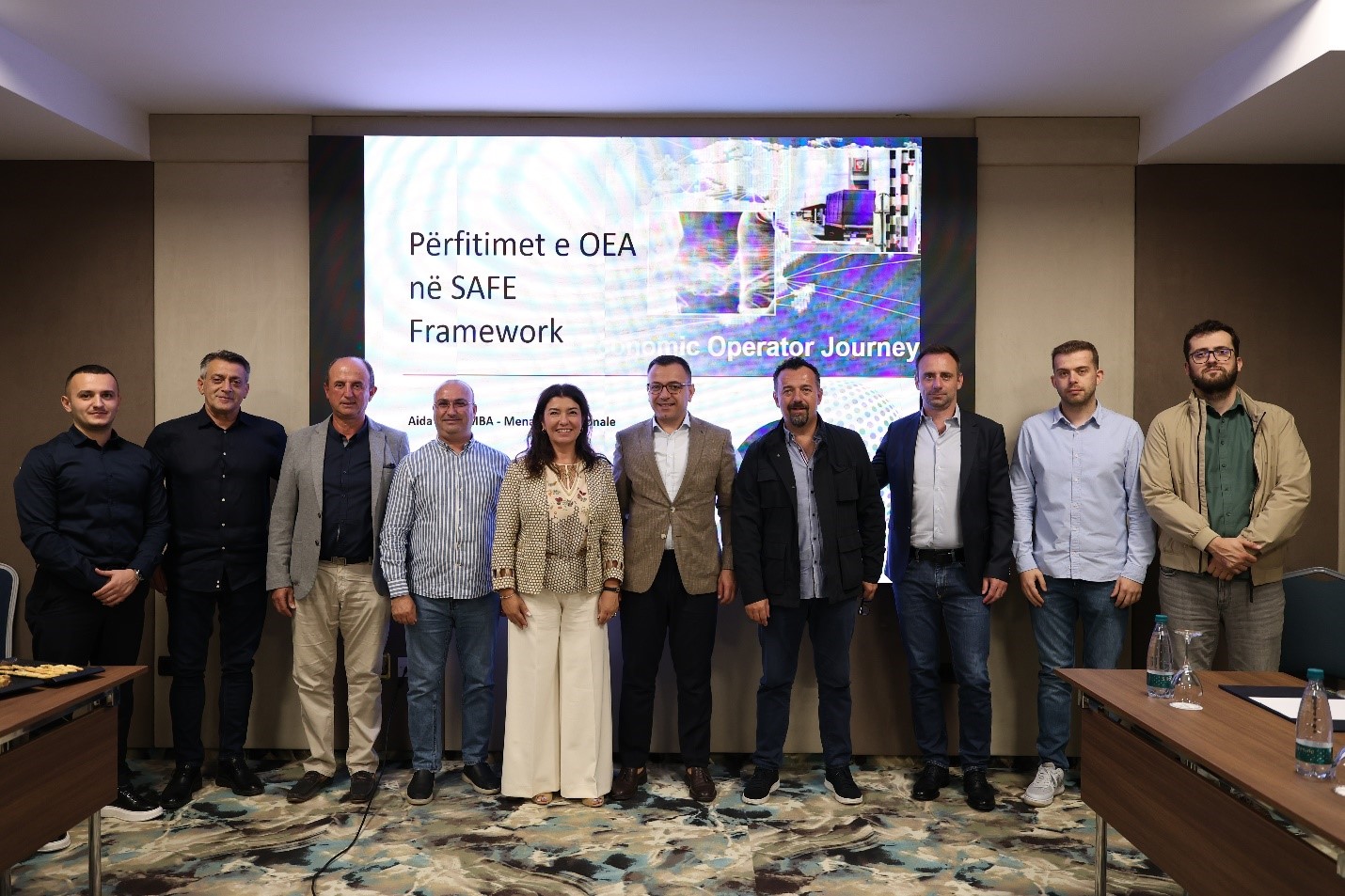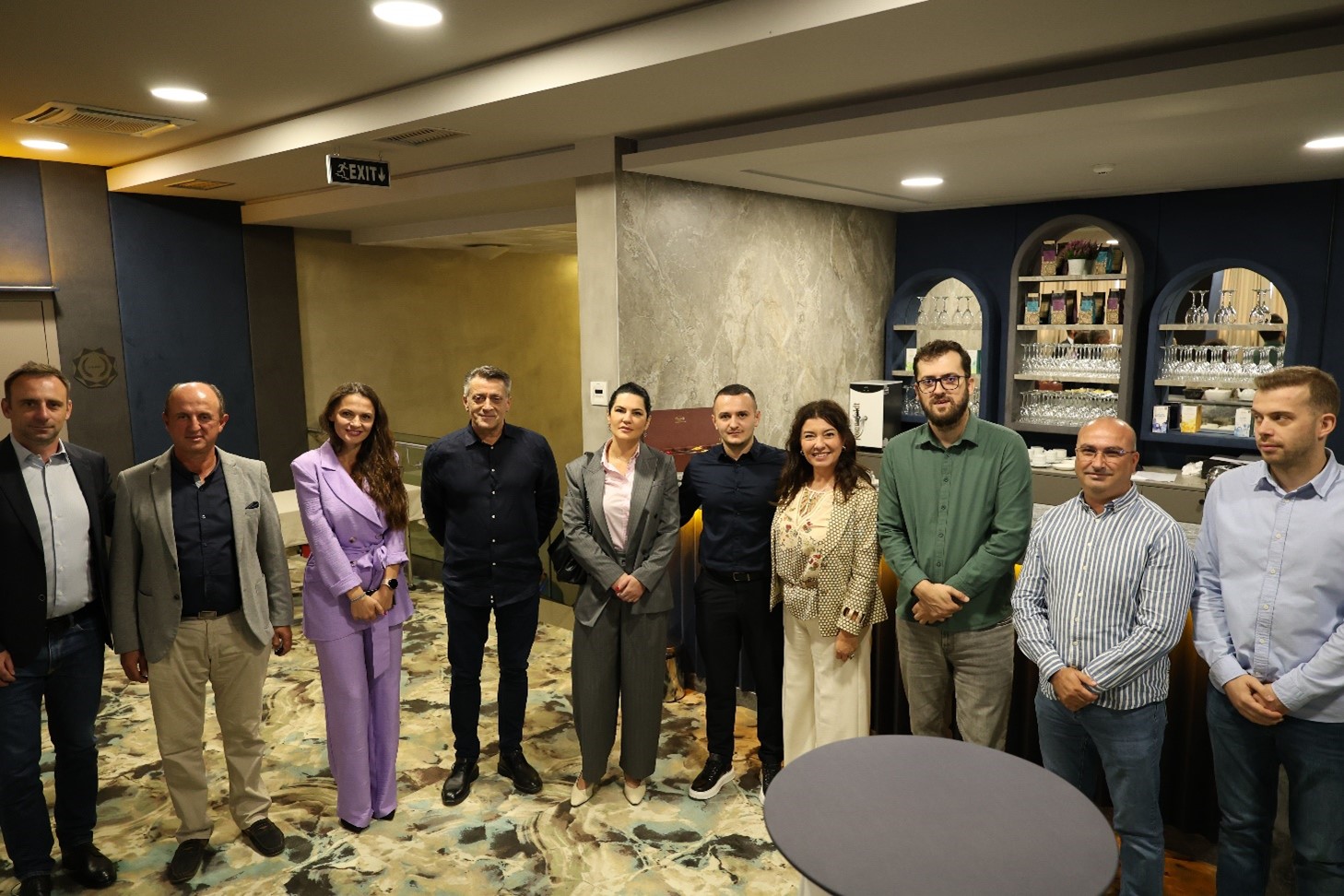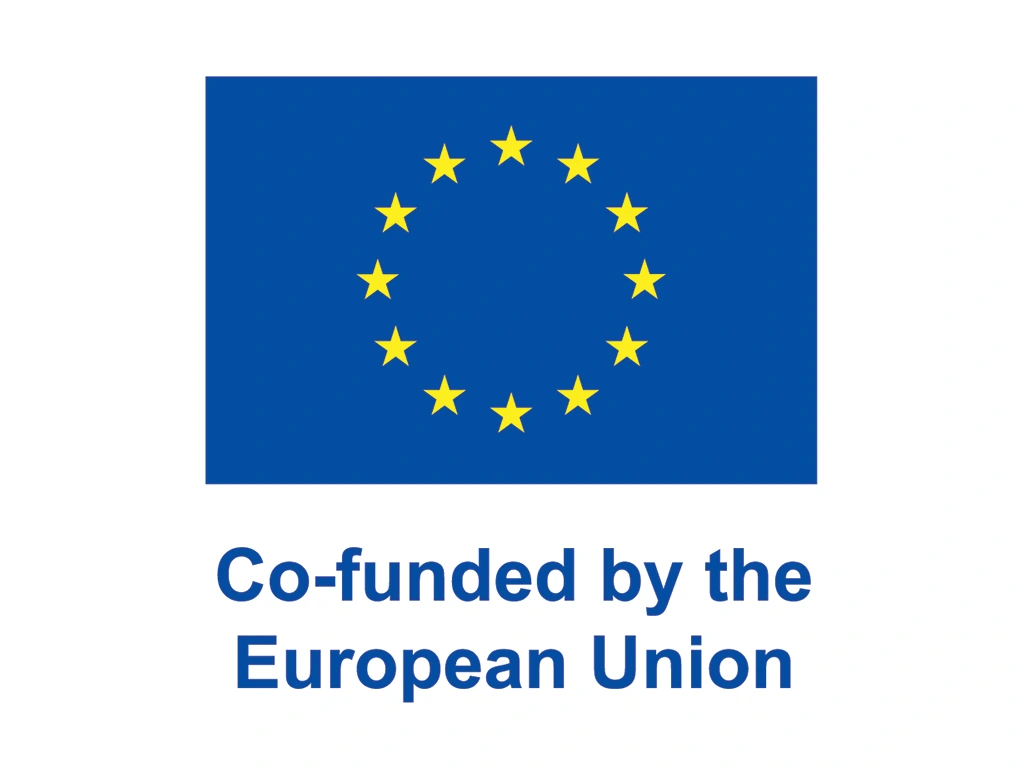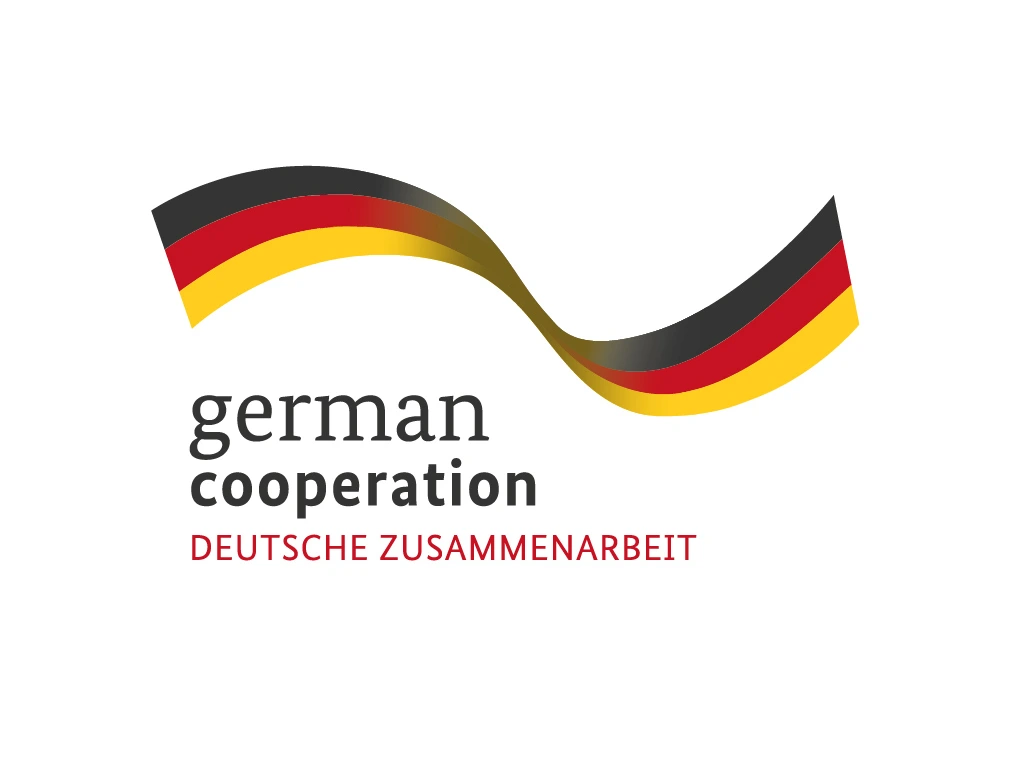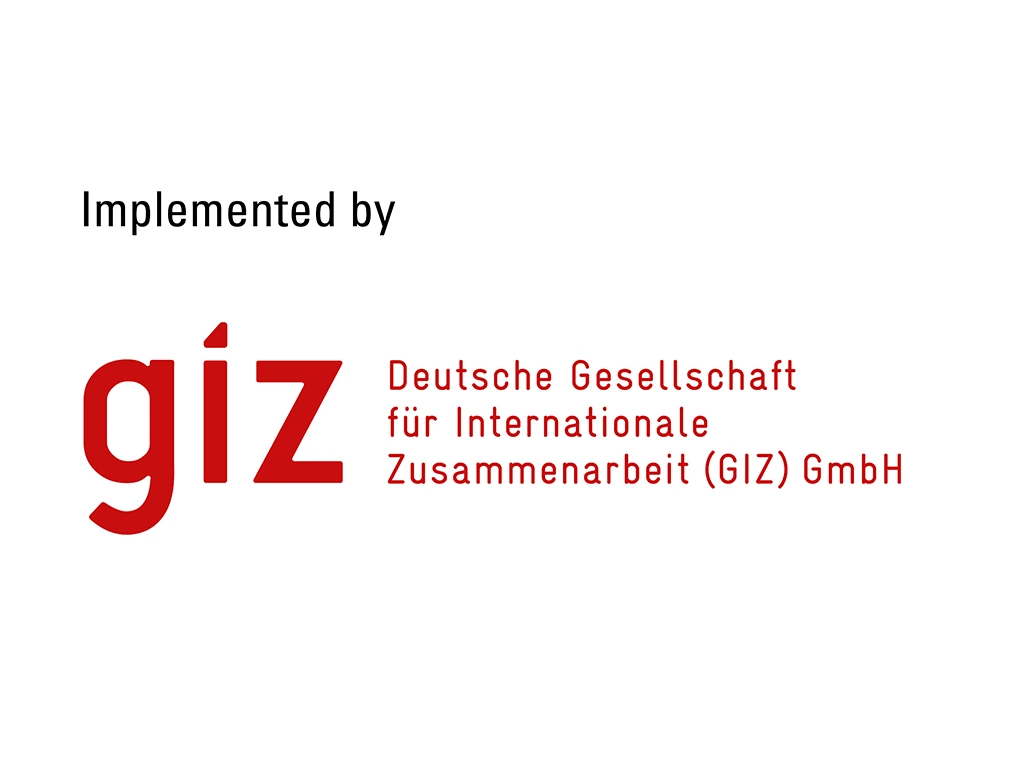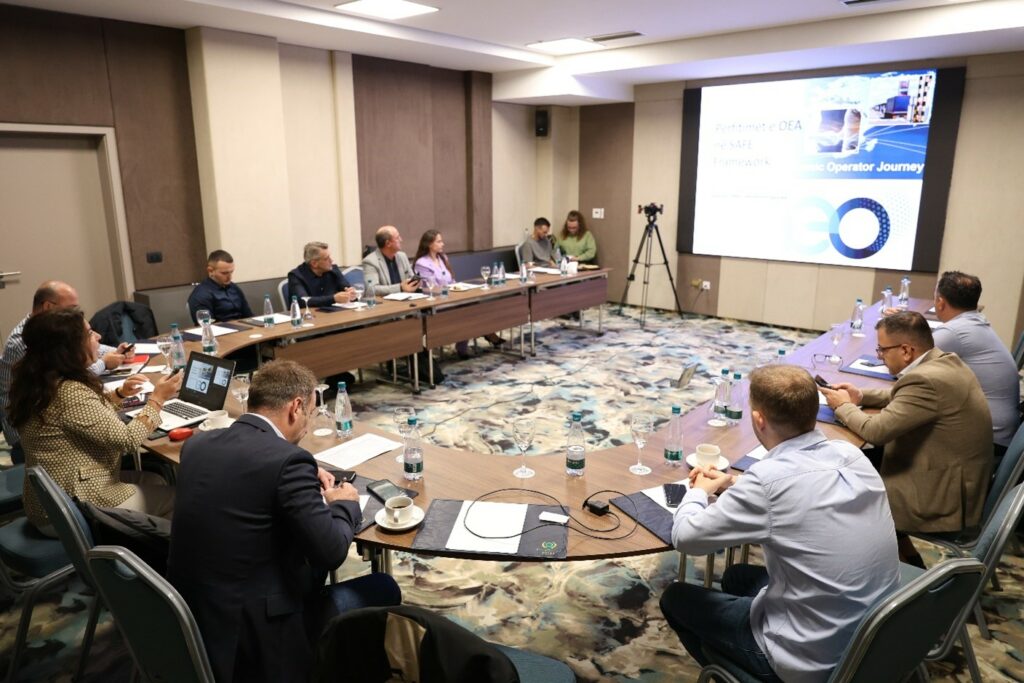
The AEO Association held its Kosovo Roundtable Meeting on 25 September 2025, kindly hosted by DHL Express Kosovo / 3P Logistics. We extend our sincere appreciation to DHL Group for their continued collaboration across the Western Balkans — this being the second regional AEO Roundtable hosted and supported by the Group.
The event brought together AEO-certified companies, logistics providers, and trade professionals to exchange experiences and identify ways to strengthen the implementation of the AEO concept in Kosovo. Presentations were delivered by Ms. Aida Nani, Regional Manager of the AEO Association, and Mr. Vartan Surmejan, representing GIZ / Regio Trade.
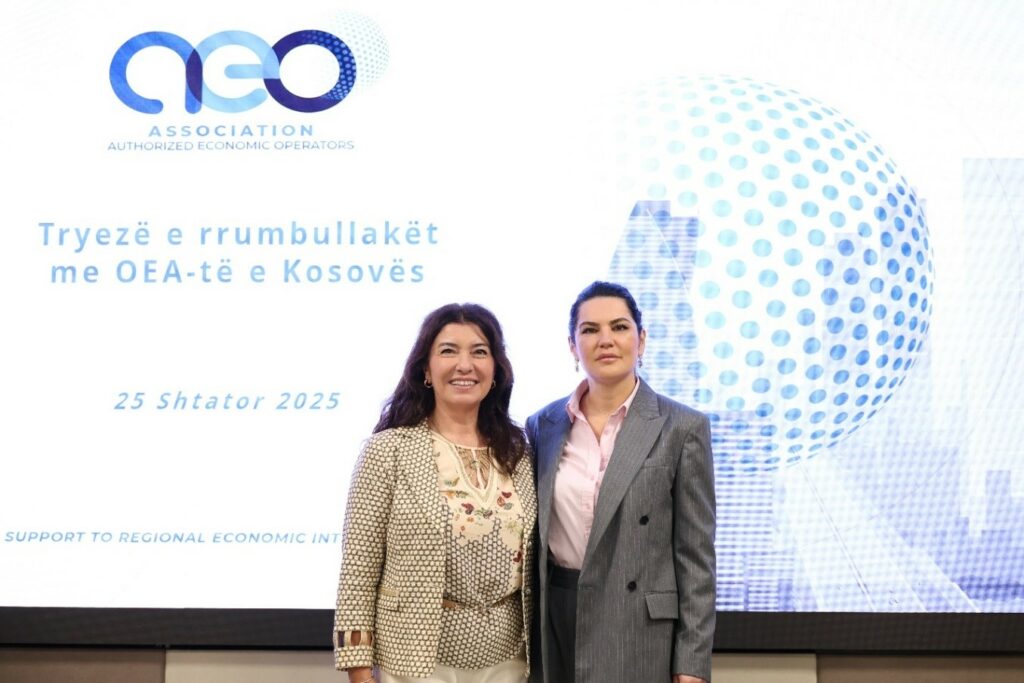
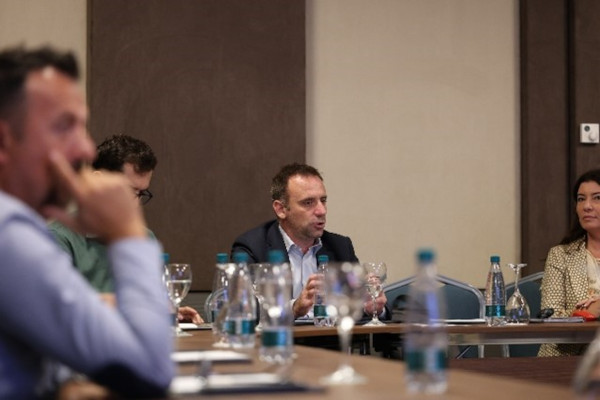
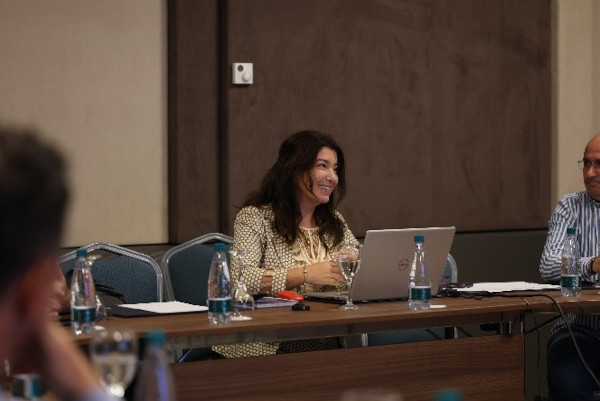
Key Discussion Points
During the open discussion session, participants shared their day-to-day operational experiences and highlighted practical challenges that continue to affect AEO operators in Kosovo. The discussion aimed to encourage constructive dialogue, focusing on how public and private stakeholders can jointly improve procedures and enhance the overall efficiency of the system.
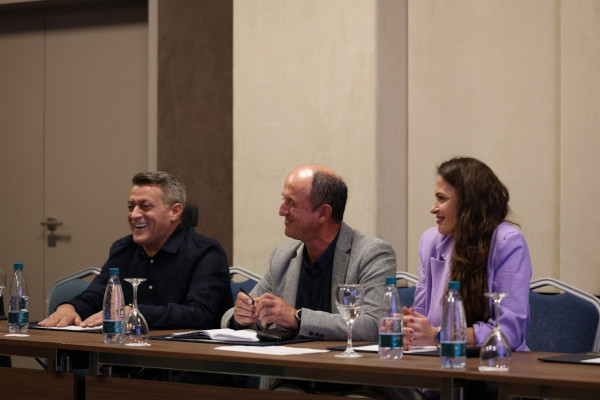


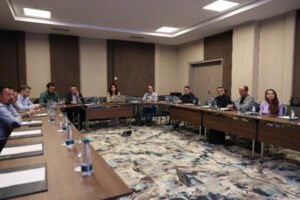

Some of the key themes raised included:
- Implementation gaps between the new Customs Code and its enforcement in practice.
- Limited working hours of customs offices, affecting clearance for lorries arriving after midday or during weekends.
- Unclear procedures regarding the right of AEO companies to choose their clearance locations, as some are still requested to move trucks to terminals due to limited staff availability.
- The Food and Veterinary Agency’s procedures are still based entirely on the Food Law, without yet integrating AEO facilitation measures.
- Recognition challenges — certificates issued by Kosovo authorities are often not accepted in other Western Balkan markets, leading to higher costs and delays.
- Transit and temporary importation issues, including the lack of NCTS and the ongoing implementation of the ATA Carnet system.
- Limited dedicated AEO lanes at border crossings, despite the commitment to facilitate trusted operators.
- Trade recognition difficulties with some neighboring markets, affecting both exports and transit operations.
- AEO companies currently do not benefit from guarantee reductions or waivers, which presents an opportunity to further align facilitation measures with AEO commitments.
- The level of facilitation differs across sectors — non-food AEO operators ‘Importers’ generally experience smoother procedures, while food-sector companies face additional checks linked to sectoral legislation.
Shared Vision
Although some companies expressed that the ongoing difficulties occasionally make them reconsider the value of their AEO investment, the overall discussion highlighted a shared determination to uphold the AEO vision and to collaborate with public authorities toward a more efficient and trusted trade environment.
Participants emphasized that open communication and joint problem-solving are key to bridging the gap between legislation and implementation. The Association remains ready to collaborate with Customs, Food and Veterinary, and all other institutions to identify balanced, risk-based solutions that support both trade facilitation and regulatory compliance.
Looking Ahead
The AEO Association will continue to document and share the findings from national roundtables across the region, promoting regional consistency, mutual recognition, and practical improvements for all AEO operators.
We once again thank DHL Group for their partnership and commitment to advancing the AEO agenda in the Western Balkans.
